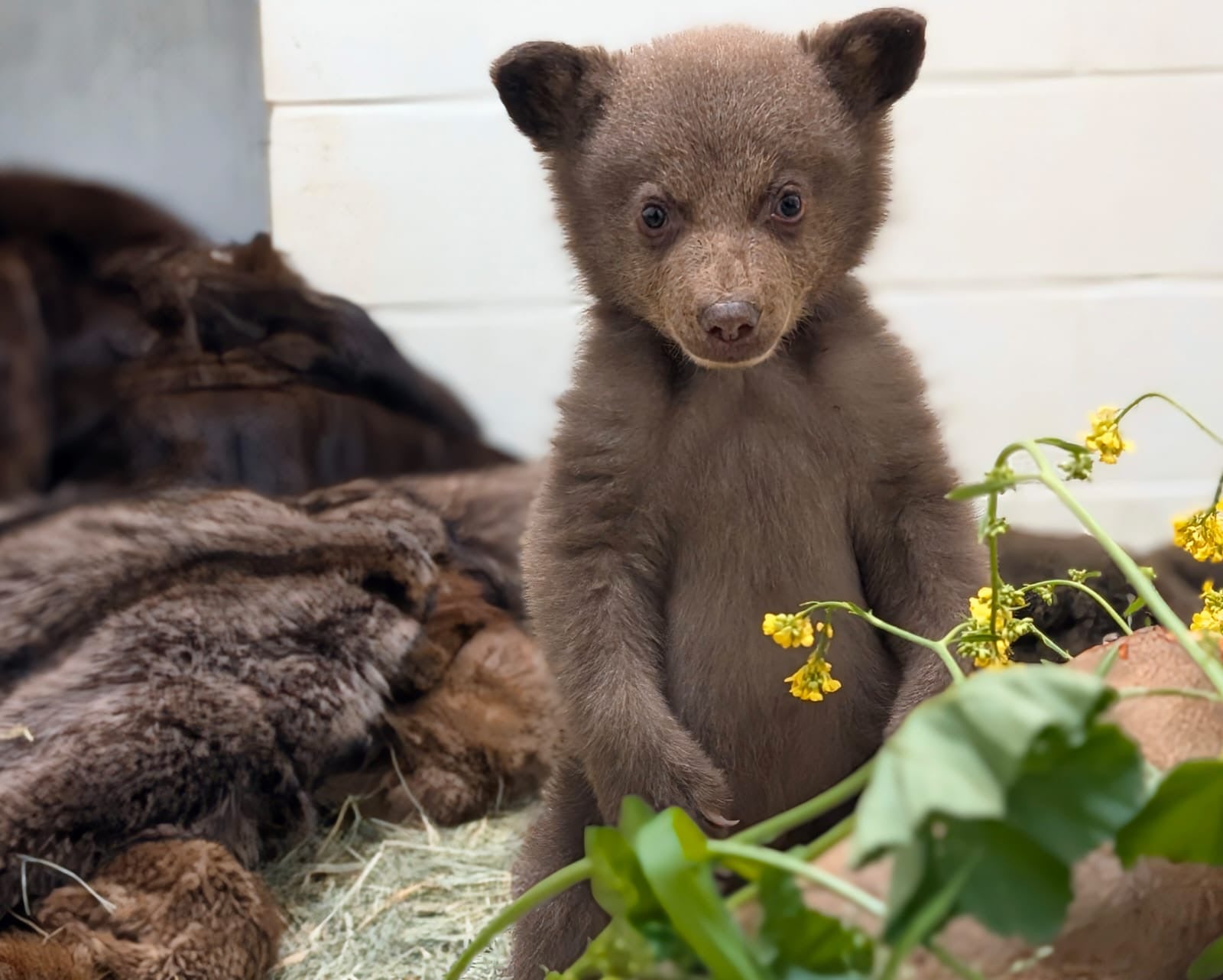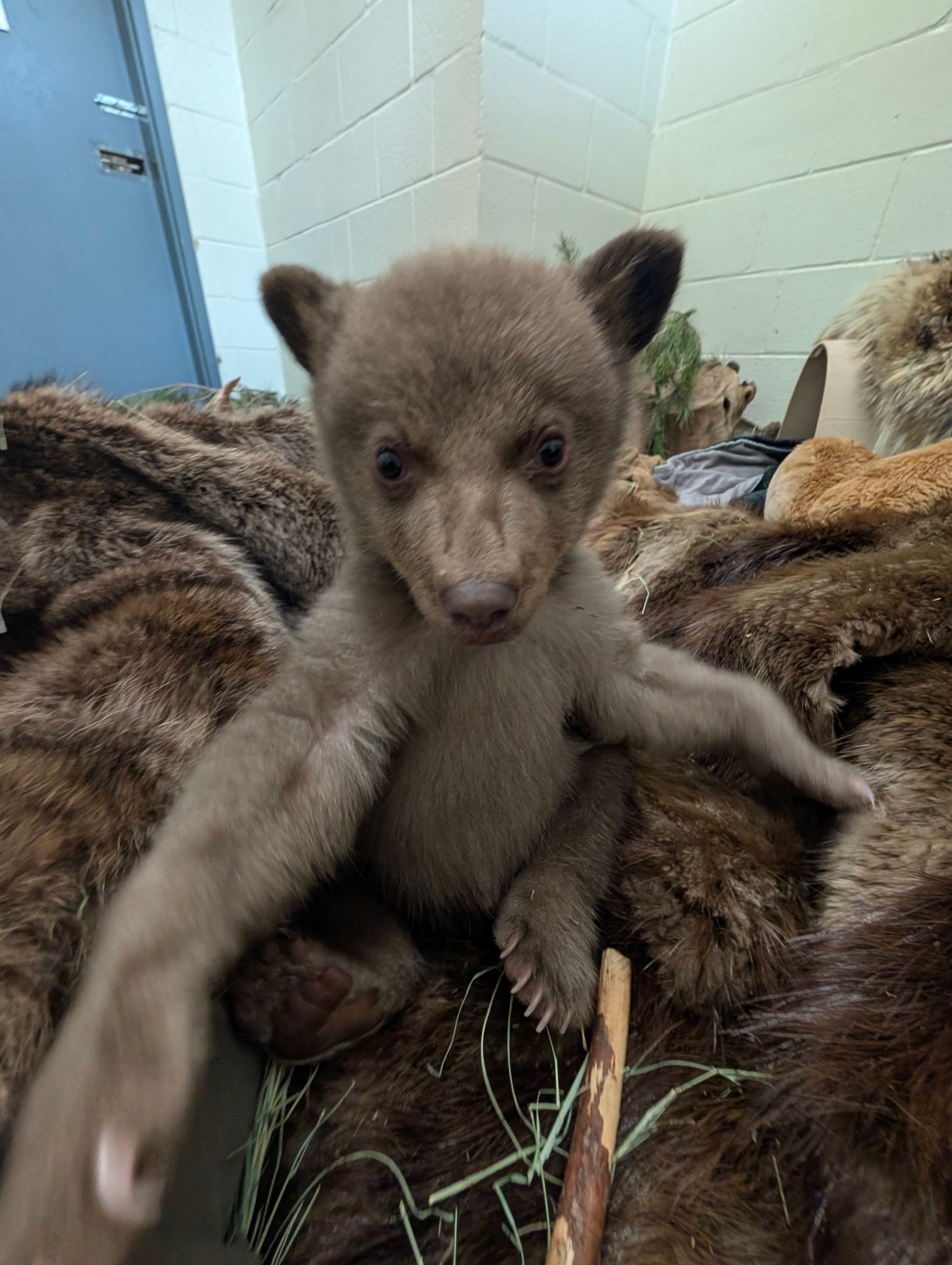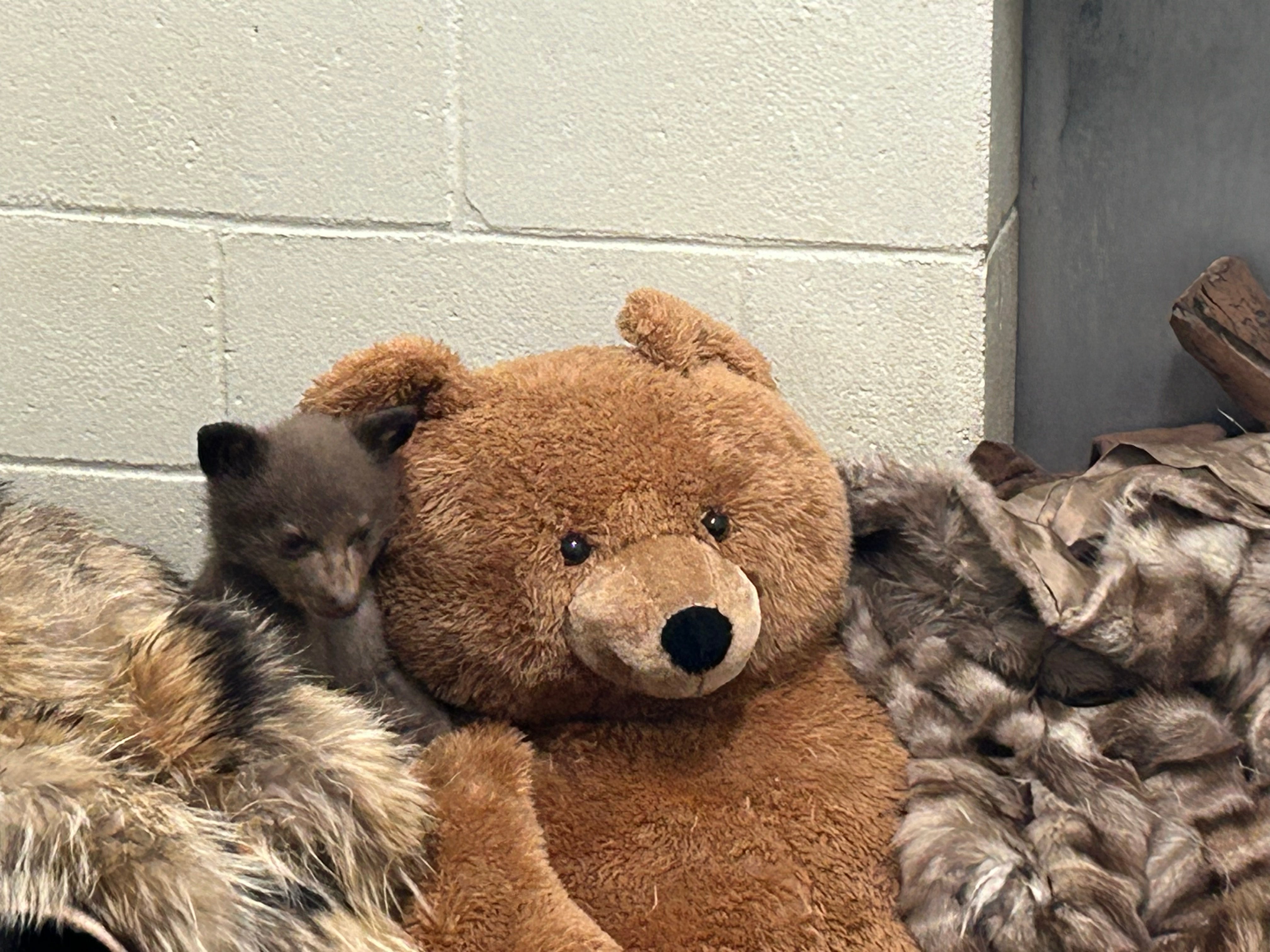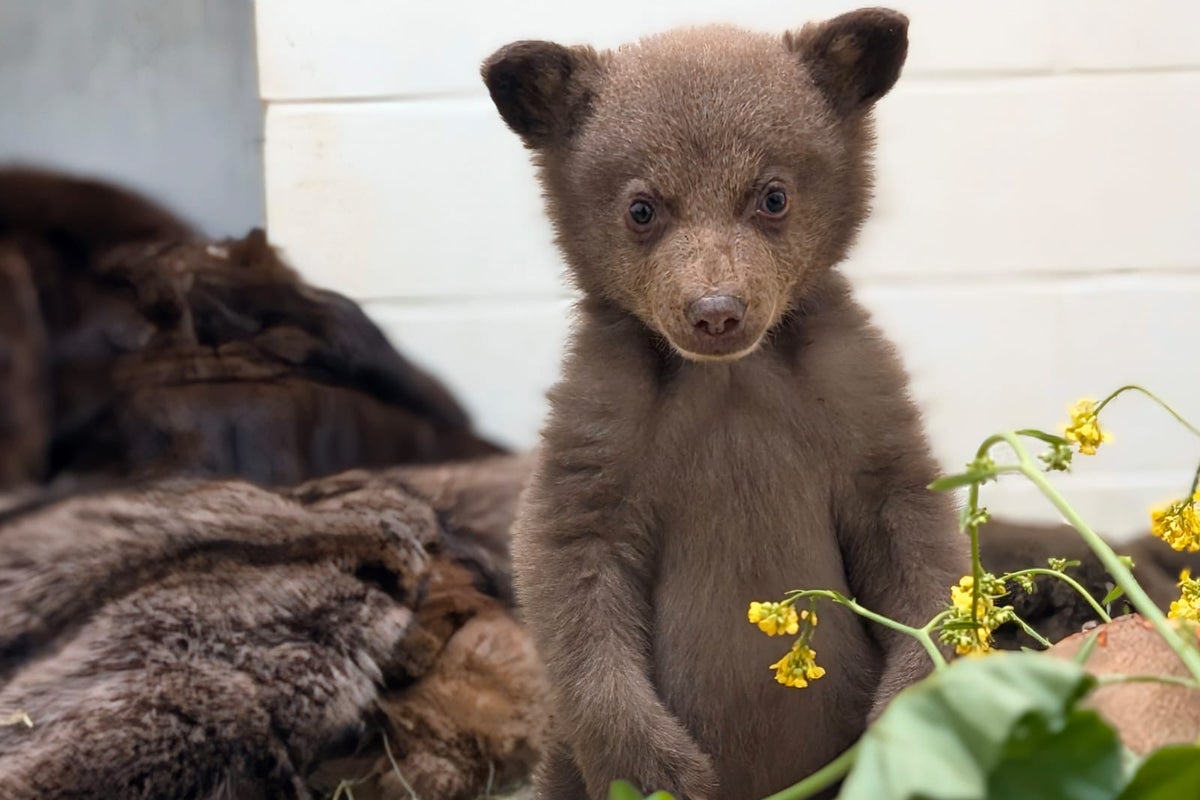He’s small. He’s furry. He’s but two months old. He’s the San Diego Humane Society’s newest resident, and he’s bear-y cute.
Wildlife experts at the facility are helping taking care of a two-month-old black bear cub who they say is the youngest they’ve ever seen.
The cub was found by campers in Southern California’s Los Padres National Forest last month. While biologists with the California Department of Fish and Wildlife had initially attempted to reunite the cub with his mother by returning him to the wild overnight, she did not return.

Two days later, and with no signs of his mother in the area, they took her to the humane society’s Ramona Wildlife Center. As one of four licensed bear rehabilitation centers in California, the center is also home to ambassador animals, including bobcats , birds, and a pygmy hippo named Hannah Shirley. He arrived weak, underweight, and alone.
“He was extremely fragile when he arrived,” Autumn Welch, the wildlife operations manager at San Diego Humane Society’s Ramona Wildlife Center, recalled. “After going several days without nutrition, it was touch-and-go at first. But now, he’s active, eating well and gaining weight steadily.”
Following 30 days under supervision, he is now “stable, playful and thriving.” He currently receives four enrichment and feeding sessions each day. However, due to his age and condition, the humane society says the cub will likely need to remain in care for up to a year.

Eventually, they hope to return him to the wild. Although, if another cub should enter care in California, they may try to pair them. That’s part of a strategy to keep orphaned cubs wild and reduce the risk of imprinting on humans.
This is the fourth bear cub this young to come into rehab care in California over the past five years.
As the weather warms, encounters with bears may increase. Mothers and bears are the last to emerge from their dens. Bear cubs seen alone are rarely abandoned, although sometimes a mother will abandon her young when she is scared by humans. Last year, the Department of Fish and Wildlife said the leading cause of orphaned bear cubs is a cub’s mother being hit by a car.

One of only three bear species found in North America, there are an estimated 300,000 black bears in the U.S.
“This is a very unusual case,” said Welch. “We don’t often see bears this young without their mother. It’s an honor to care for him, but it’s also a significant commitment. We rely entirely on donations to make this kind of specialized care possible.”





